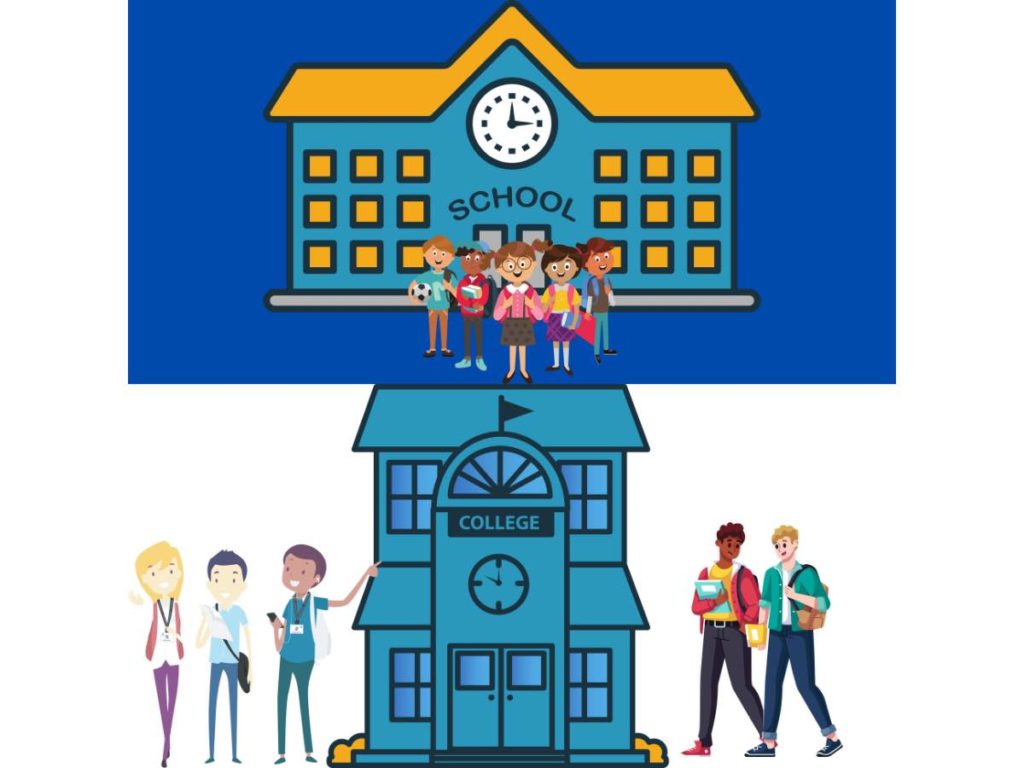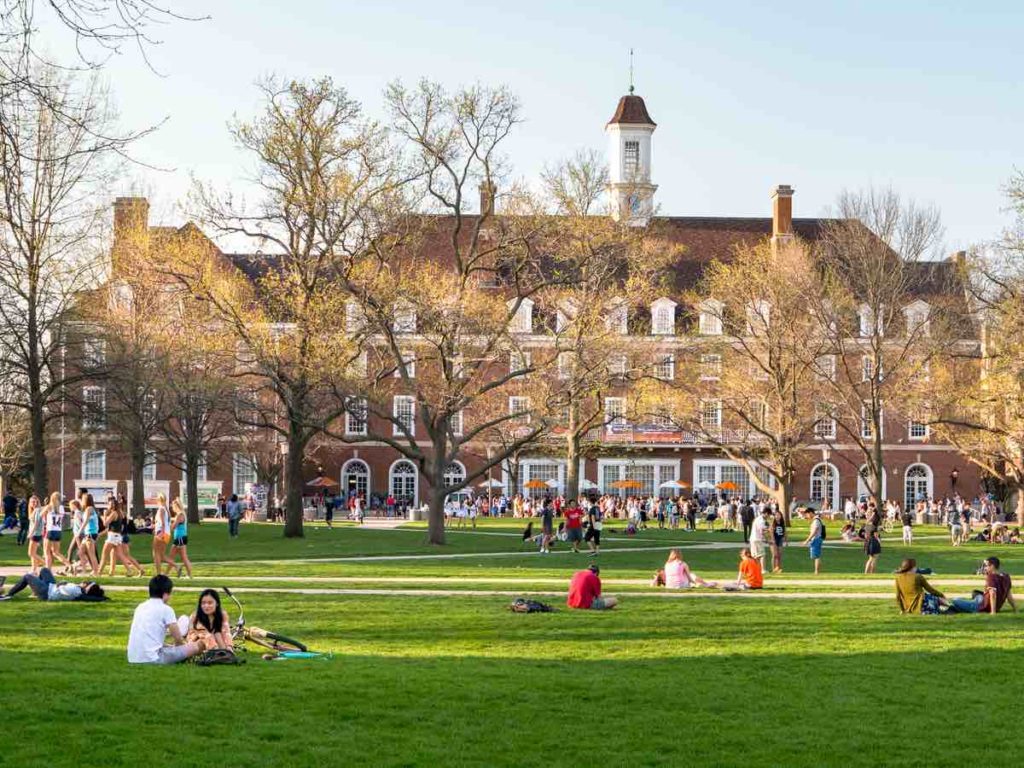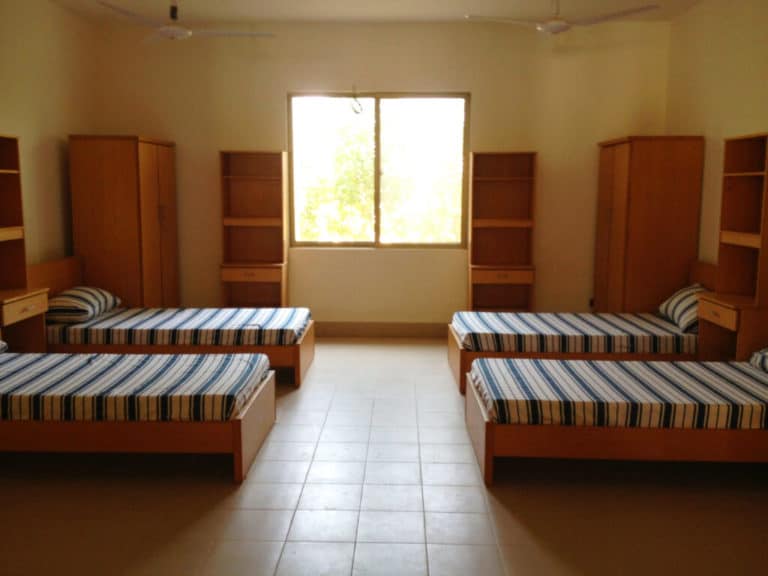Is College Harder Than High School?
So, you are currently building a college list. And you feel stressed and anxious because you have to juggle between the college application process and high school classes and extracurriculars. And now you may be wondering if being a college student is going to be more grueling than being a high schooler or surprisingly easier.
Generally speaking, college is harder than high school because of the more difficult courses and coursework. College students are also usually on their own, away from family and friends. However, high school can be harder than college, too, depending on the academic rigor and the things teens go through.
No matter if you absolutely love high school or totally hate it, you can’t help but wonder if college is going to be an easier experience or a more challenging one.
Well, there’s only one way to find out without having to wait until you’re a college student: by reading on!

In this post, I will tell you some of the things that make college harder than high school. I will also enumerate some of the stuff that make college easier than high school.
Reasons Why College is Harder
Bigger campus
Whether in terms of campus size or student population, it’s not uncommon for college to be bigger than high school. Some of the largest campuses in the country can be as large as more than 5,000 acres. Some of the most densely populated colleges and universities in the US can rival a small town’s population, too.
Some institutions of higher education have a student-to-faculty ratio as high as 47:1 (Regent University) or 30:1 (University of Central Florida), which can be particularly overwhelming for many fresh high school graduates.
Campus diversity
There are many perks that come with attending a diverse college or university. For one, it can boost campus learning and community experience, which can prepare college students for the workplace, including the global kind.
But while there are benefits to enjoy for being a part of a diverse student body, it can also make college stressful and difficult for students who are used to a small high school environment and those with an introverted personality. However, it can also be an opportunity for them to improve their social skills and cultural competence.
Work
Now more than ever, earning a college degree doesn’t come with a bargain-basement price. That’s why many college students, especially those from low-income backgrounds, get a job to help pay for college.
If it seems like you will have to work in college, there’s no need for you to feel alienated or defeated. According to the latest data from the National Center for Education Statistics (NCES), 53% of undergraduate students are employed full-time. On the other hand, 85% of undergraduate students are working part-time.
Harder courses
Just like what was mentioned early on in this post, college is harder than high school because the courses are simply more arduous this time around — although the program or major has a say on a coursework’s overall difficulty level.
The more challenging the major, such as something that’s in the STEM field like architecture, chemical engineering or physics, the more difficult the courses, in particular the core or requirement ones. But by working hard, college students can also get high grades in the hardest courses they have to take.
More coursework
It’s true that, typically, college students have to take fewer classes per week than high school students. Unfortunately, it doesn’t necessarily mean that they have to deal with less coursework, too — the coursework tasks of college students tend to be plenty and challenging, which means lots and lots of hard work per week.
The fact that college is a fast-paced academic world can make everything even more challenging, which is why being organized, disciplined, focused and motivated is very important.
Away from home
Out-of-state and even some in-state students have to leave behind their family and friends as they work on their respective college degree programs. Because of this, homesickness can be quite common among many college students.
As a matter of fact, according to a recent report, over 30% of college students experience some form of homesickness. Meanwhile, approximately 70% of freshmen college students go through severe homesickness. The problem with feeling homesick is that it can lead to serious mental health issues.

Reasons Why College is Easier
On the other hand, I heard many times from the kids who attended our local public school that the college they went to was easier than their high school. It usually depends on the school’s competitiveness (our high school is in the top 10 in the state), and the college (obviously MIT is harder than most state universities).
Below, are other reasons why studying in college can be easier than you think.
Fewer classes
It’s not uncommon for high school students to have as many as eight classes per day. It’s no wonder why, based on a recent survey, as much as 45% of high schoolers report feeling stressed all the time. Also, American teens rate their stress level 5.8 (out of 10) — the normal rating for most teenagers is 3.8.
One of the things that make college easier than high school is the fact that students do not have to take as many classes per day. In college, it’s common for students to have as few as three classes daily.
Course selection
Want to steer clear of some of the most difficult classes in college?
You can!
All you have to do is be smart when it comes to choosing your electives. Generally speaking, students working on a bachelor’s degree are required to take anywhere from three to five elective classes all in all. But you can take as many as you like, technically speaking.
But keep in mind that, in some majors, undergraduate students can pick certain electives only. You can rest assured, however, that some elective classes are simply easier than the rest.
Flexible schedule
Above, we established the fact that there are fewer classes to take in college. And it goes without saying, too, that college classes can be spread out, depending on one’s chosen schedule.
By creating the right schedule, you will find that there’s more time to sleep and have fun in college than in high school. There are also plenty of opportunities for you to pursue a hobby or a passion in life. Still, it’s important to work hard, especially if the goal is to get good grades and enjoy better employment opportunities after graduation.
Earn money
Besides sleeping, doing a hobby and other activities mentioned or not mentioned above, a flexible schedule in college also makes it possible for you to have a part-time or even a full-time job in order to earn some cash. Being a working college student allows you to gain skills that can be valuable in the workplace, making your resume more marketable.
However, keep in mind that you may have to devote some or most of your earnings to your education — based on this survey, as many as 45% of students pay for their college with their income and savings.
More support
In high school, students rush to the high school counselor, whom they have to share, for matters related to their personal and academic lives as well as higher education and career goals. In college, you can turn to a number of individuals who can provide advice and support and assistance on college-related matters.
For instance, you can seek the help of the program or academic advisor regarding major requirements, class schedules and others. There are also counselors and mentors around who can provide personalized guidance.
Just Before You Apply to College
The general consensus is that college is harder than high school. However, high school can be easier than college, too, depending on the institution and student. So, in other words, it’s a relative and subjective matter.
However, no matter the case, one thing remains true: you will still have to be dedicated, disciplined and diligent in college to complete your chosen degree program with flying colors. Students work hard in high school to get to their dream colleges, and students work hard in college to have their dream careers.
Related Questions
Can you retake a course in high school to improve your GPA?
In high school, the process of retaking a course in order to raise the GPA is called grade replacement. When students retake a course, the lower grade comes off the transcript and is replaced by the higher grade. It’s important to note that not all high schools allow grade replacement.
Can you retake a course in college to improve your GPA?
College students can retake a course with a low or failing grade. The old grade will remain on the transcript, although different colleges tend to compute the new GPA differently. Some colleges completely disregard the old grade, while others average the old grade with the new grade.
Disclaimer: The views and opinions expressed in this article are those of the authors and do not necessarily represent those of the College Reality Check.





